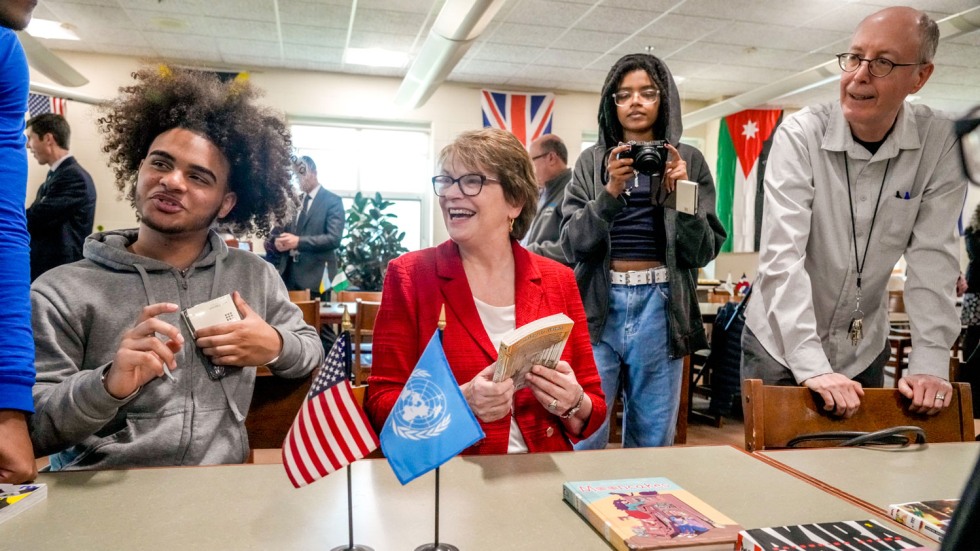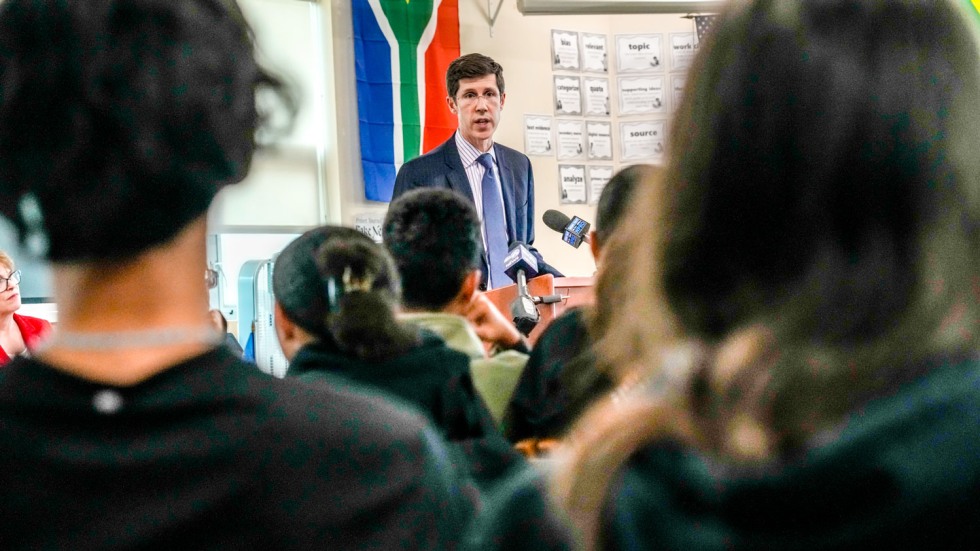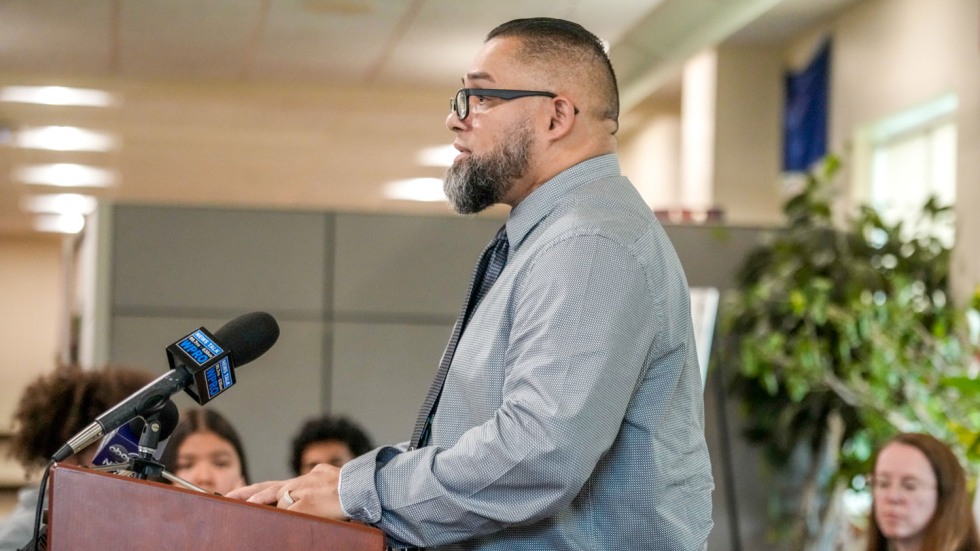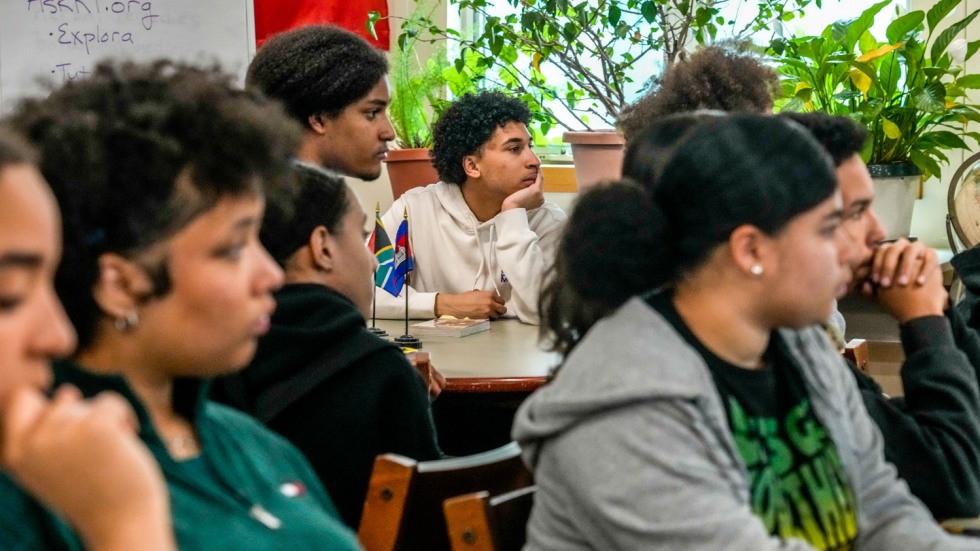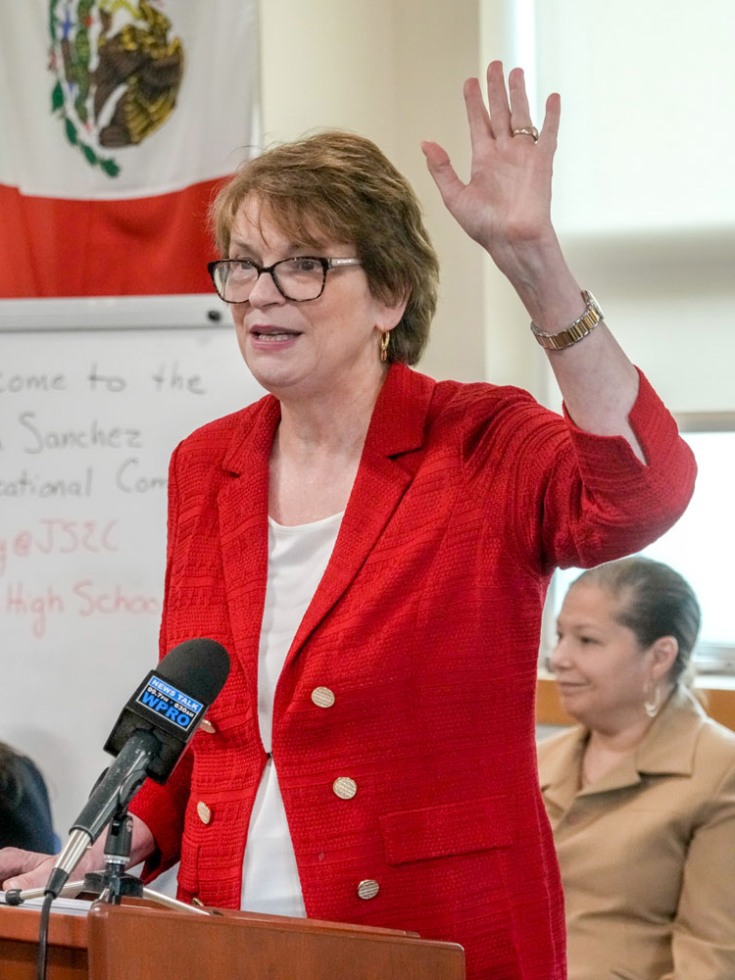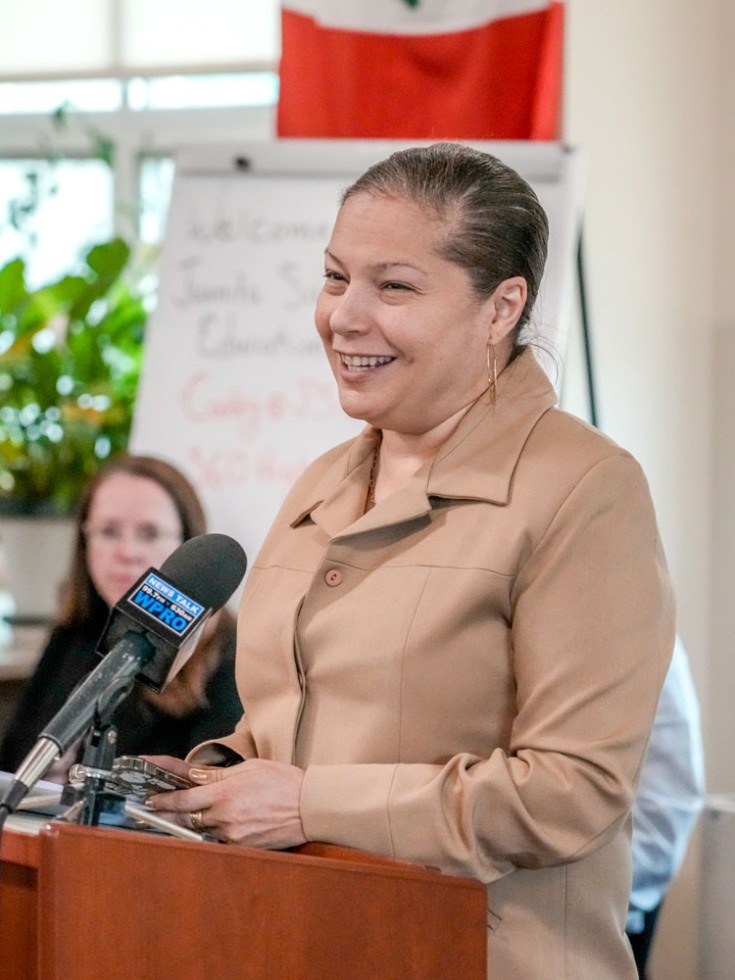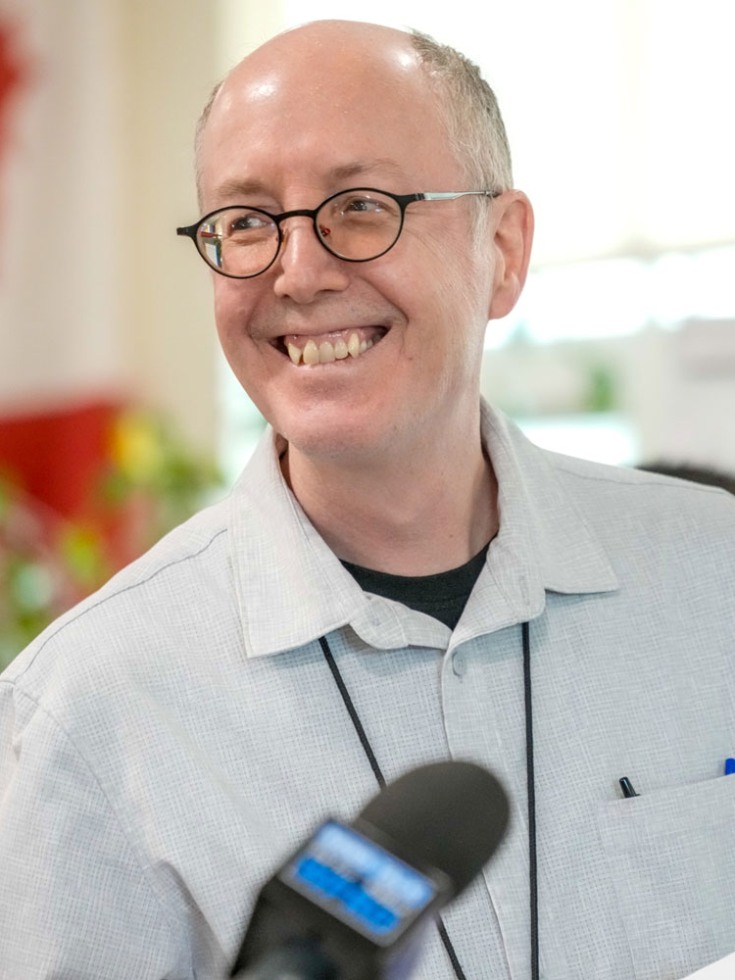PROVIDENCE, R.I. [Brown University] — A total of $1.25 million in new grants from Brown University’s Fund for the Education of the Children of Providence will support crucial Providence Public School District initiatives to strengthen high school libraries and boost middle school students’ financial literacy.
Most of the funding will support a three-year collaboration between the Brown University Library and librarians and teachers at PPSD high schools. The $1.15 million project will enhance libraries’ existing collections and facilities, increase high school teachers’ curricular engagement with the libraries and create programs that bring high school students into community and University libraries for unique learning opportunities.
A second grant will support an upcoming collaboration between scholars at Brown University and Nathanael Greene Middle School. In June, close to 250 students from the middle school will visit the University to take part in a participatory budgeting project, where they will work together to decide how PPSD should spend $100,000 from the Fund for the Education of the Children of Providence to support students across the district.
A Public Education Committee composed of Providence and Brown community members, including state and district educators, voted unanimously to support the two projects with payouts from the Fund.
Members of the committee joined elected officials and leaders from Brown and PPSD to announce the Fund disbursements at a Friday, May 19, event at the Juanita Sanchez Educational Complex. University President Christina H. Paxson said the newly funded projects are a testament to Brown scholars’ deep engagement with K-12 educators and students.
